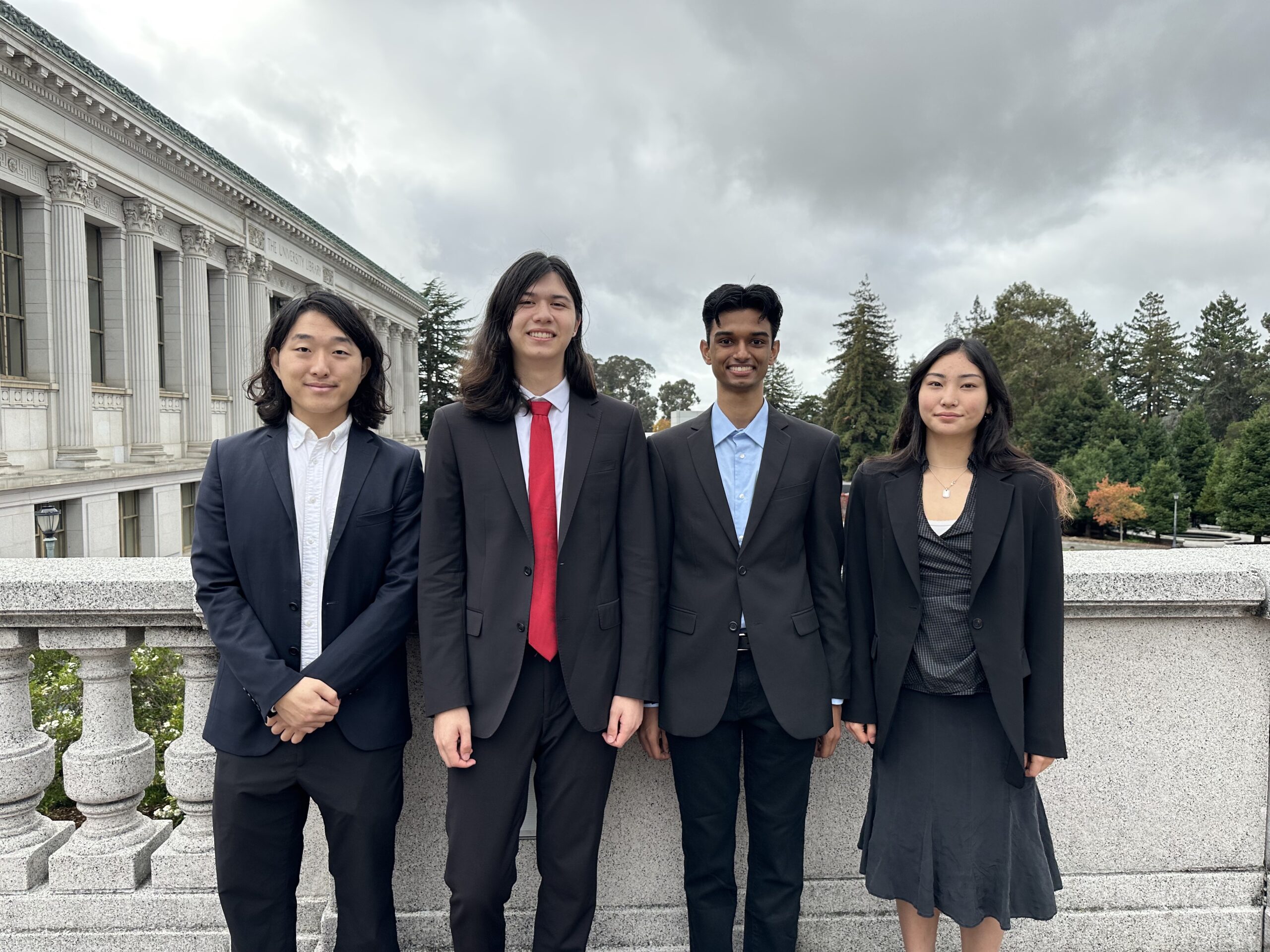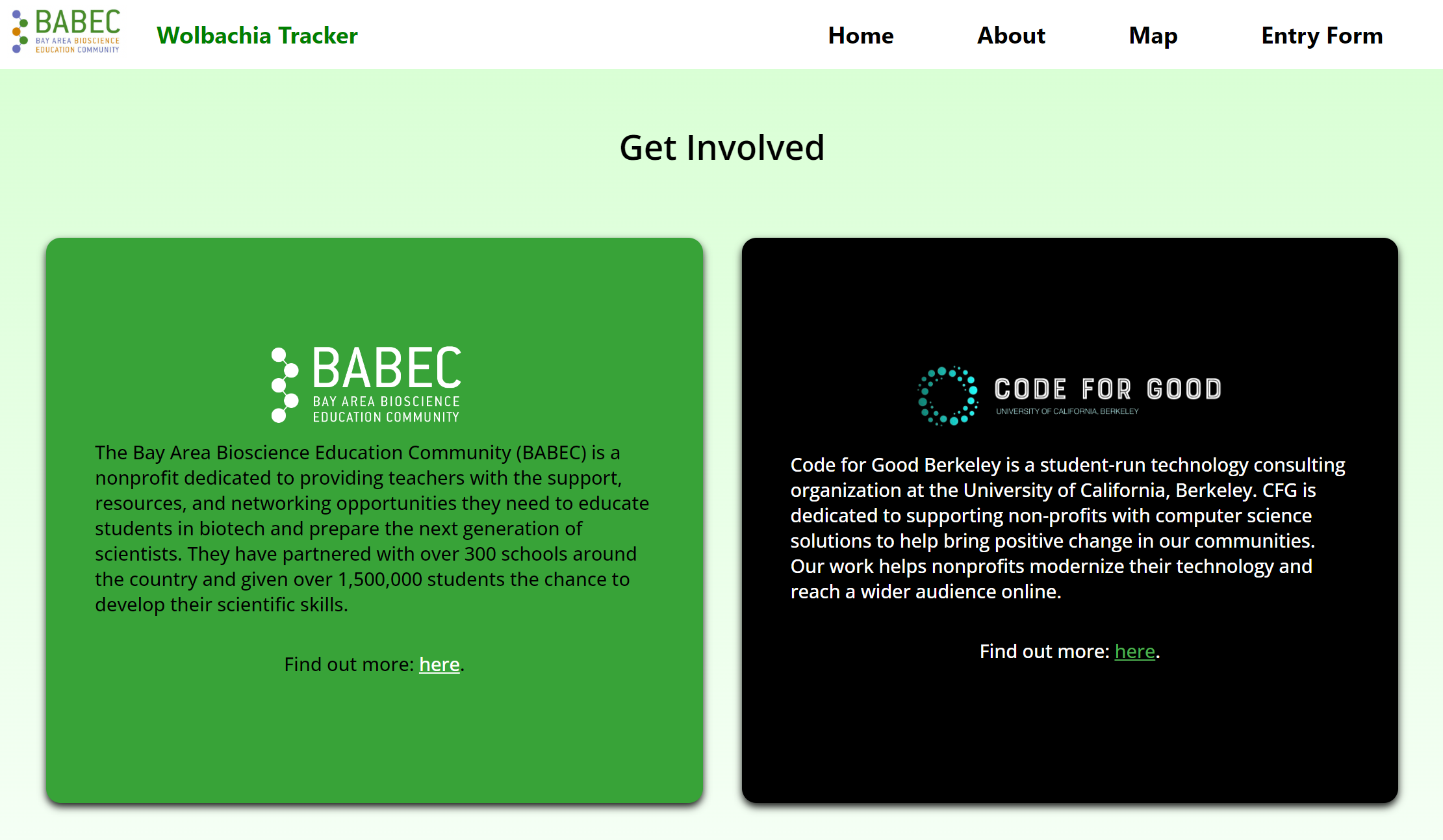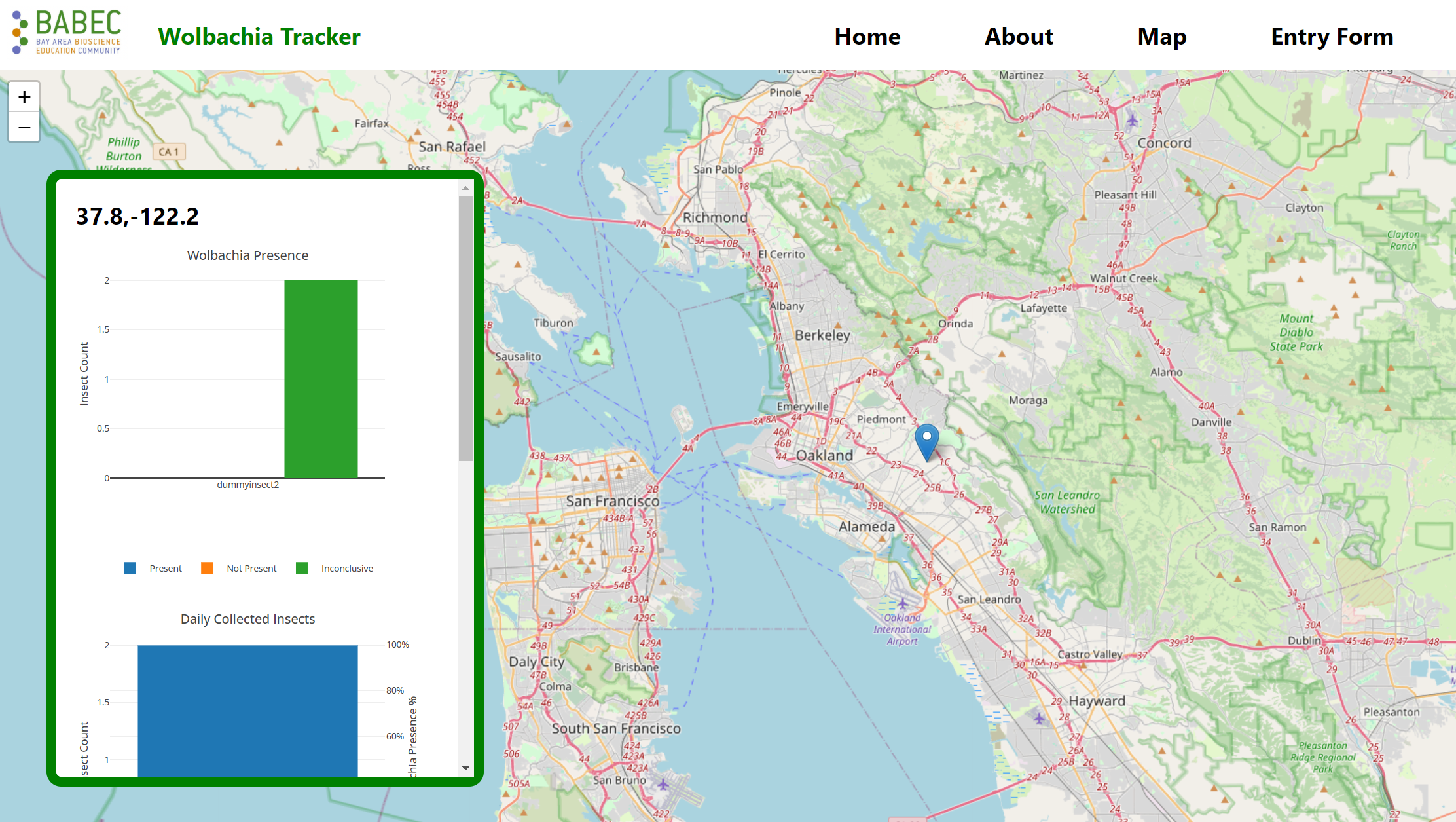Code for Good is a campus club at UC Berkeley dedicated to making a positive impact on society through the power of technology and coding. Alex Pease and his team are helping BABEC develop a database for our Wolbachia lesson where students can share their results with the scientific community worldwide. In this interview, BABEC had the opportunity to sit down with Alex and Emily (Hyojeong) Yoon, two dedicated members of the project, to learn more about their mission and their experiences.
Can you explain what Code for Good does in a way that your grandma would understand?
Code for Good is a campus club that helps non-profit organizations develop their technology. This includes modernizing websites and creating new online tools for the organizations to use. Our main goal is to support nonprofits through technology, whether that is helping them work more efficiently or reach more people on the internet.
Tell me a bit about yourselves and how you got involved with Code for Good.
Alex: I’m a sophomore at Cal, studying computational chemistry. I became a project manager with Code for Good because I wanted to improve my coding and web development skills in a way where I could help out the community and make a positive impact on the world.
Emily: I’m an exchange student from Seoul National University in Korea, studying business administration and statistics. I am a developer and had previous experience with web development. I find it really fun. I joined because I liked the idea of using my skills for social good.
What’s it like working with the Code for Good team, and what’s a typical day like?
Alex: The team’s work involves general meetings with the whole club as well as project meetings with just the BABEC group. General meetings include status reports, professional development, and team bonding. Project meetings are where we discuss our progress, collaborate on work, and ensure we are on the same page in the website development process. Outside of meetings, we also work individually. As a project manager, I find non-profit organizations to work with, determine the project scope and timeline, organize meetings, and help out with development wherever I’m needed.
How did Code for Good get connected with BABEC and the Wolbachia project?
Alex: I knew I wanted to work on a biotech/natural science project, which aligns with my interests and chemistry major. I googled biotech nonprofits in the bay area, and found BABEC. Their projects and goals looked really interesting, and they had a project for us to work on so it was a perfect match! I ended up managing this project since I’m one of the few Code for Good members that is not pursuing a tech-related major, so my background knowledge was a good fit.
What will you be doing for the Wolbachia project?
We are working on creating a website that allows students to track data related to insects and Wolbachia. This website will feature an interactive map with data points, including insect order, location, collector information, teacher details, and DNA sequence tagging. We are actively working on finalizing the database and developing visualizations and graphs for the project, with a draft expected in the coming weeks. Participants can use this aggregated data to look for patterns and determine new research questions.
Can you share your experience working on the Wolbachia project?
Alex: Working on the Wolbachia project has been a great learning experience. We haven’t done a full-stack project before, where we handle database management, data analysis, and front-end development, so all of the developers are learning a lot. It has also taught me a lot about project management, something I was personally eager to explore. The team has been great at communicating and collaborating, making it a rewarding experience.
What would you consider the most significant social impact that Code for Good has had so far?
Code for Good only recently rebranded and shifted its focus towards helping non-profit organizations. Our primary goals are to assist non-profits, create opportunities for students to learn about web development and computer science, and promote accessibility for everyone. Our motivation is different from other similar clubs that mainly consist of people with prior experience looking for career pipelines, as we are driven by the desire to create social good, learn, and support the community.
How can technology and coding contribute to positive change in the world?
We believe that technology is a powerful tool for creating outreach and giving people a voice. Coding and web development allow us to analyze the past and create value for the future. By harnessing technology, we can bring together information and find the best path forward. The impact of technology is profound, connecting people and creating opportunities for positive change.
What are your personal goals related to your involvement with Code for Good?
Alex: My personal goal with Code for Good is to find a way to combine my skills in chemistry and coding, explore more options for my career, and help the community as much as I can along the way.
Emily: While I won’t pursue web development, my goal is to apply my skills to business and finance, focusing on collaboration and creating positive change.




